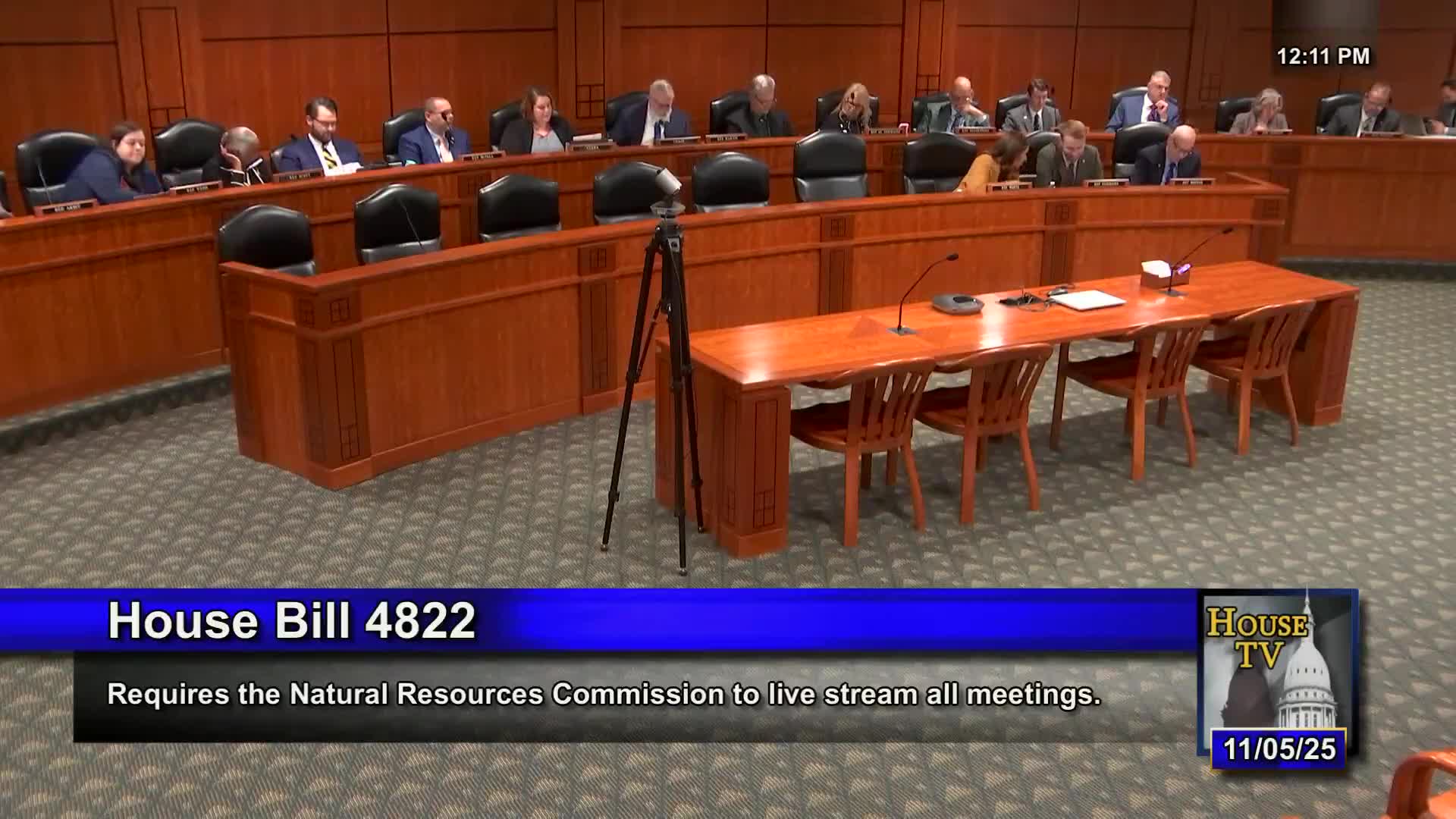Committee adopts substitutes and hears testimony to streamline underground storage tank cleanup fund
Get AI-powered insights, summaries, and transcripts
Subscribe
Summary
The committee adopted substitutes to HB 4940 and HB 5115 to clarify claim and invoice procedures, expand eligibility, increase the fund’s administrative cap to 12%, and add a sunset for the legacy-release program.
The House Committee on Natural Resources and Tourism adopted substitutes to House Bills 4940 and 5115 and then heard extended testimony from industry and agency witnesses on proposed changes to the underground storage tank cleanup fund.
Sponsor testimony summarized the bills’ principal changes: (1) separate and clarify claim and invoice submission requirements, (2) establish eligibility for federally recognized tribes to access financial responsibility under the cleanup fund, (3) increase the administrative cap on the fund from 7% to 12%, and (4) set a sunset provision for the legacy release program that provided limited reimbursement for releases that occurred before Dec. 30, 2014.
Mark Griffin, representing the Michigan Petroleum Association and the Michigan Association of Convenience Stores, urged support and recounted the history of the program; in his testimony he said industry and state efforts have closed more than 18,000 sites and that the program closed more than 500 sites in the last fiscal year. He told the committee the refined petroleum fund “generates about $58,000,000” (as stated in his testimony) and described general allocations to state programs during his remarks.
Dylan Gephart, legislative liaison for the Department of Environment, Great Lakes and Energy (EGLE), said the bills will streamline and improve the UST cleanup fund by clarifying claim/invoice processes, updating timelines, codifying tribal eligibility, increasing the administrative cap, and providing the legacy‑release sunset. Bob Reisner, the program administrator for the Michigan Underground Storage Tank Authority, was present and offered to answer technical questions.
Committee roll-call votes recorded the adoption of the H‑2 substitute for HB 4940 (15 yays, 0 nays, 0 passes) and the adoption of the H‑1 substitute for HB 5115 (15 yays, 0 nays, 0 passes). The committee did not record public-comment cards for the bills and adjourned after testimony and questions.
